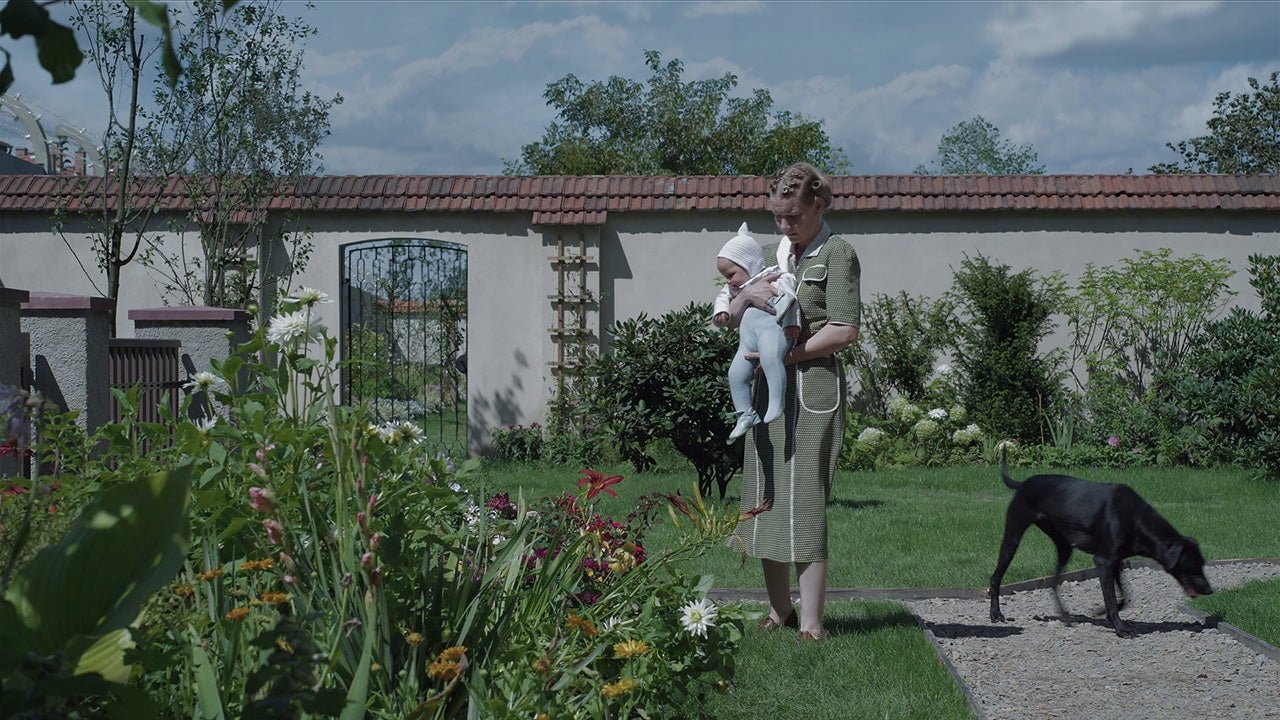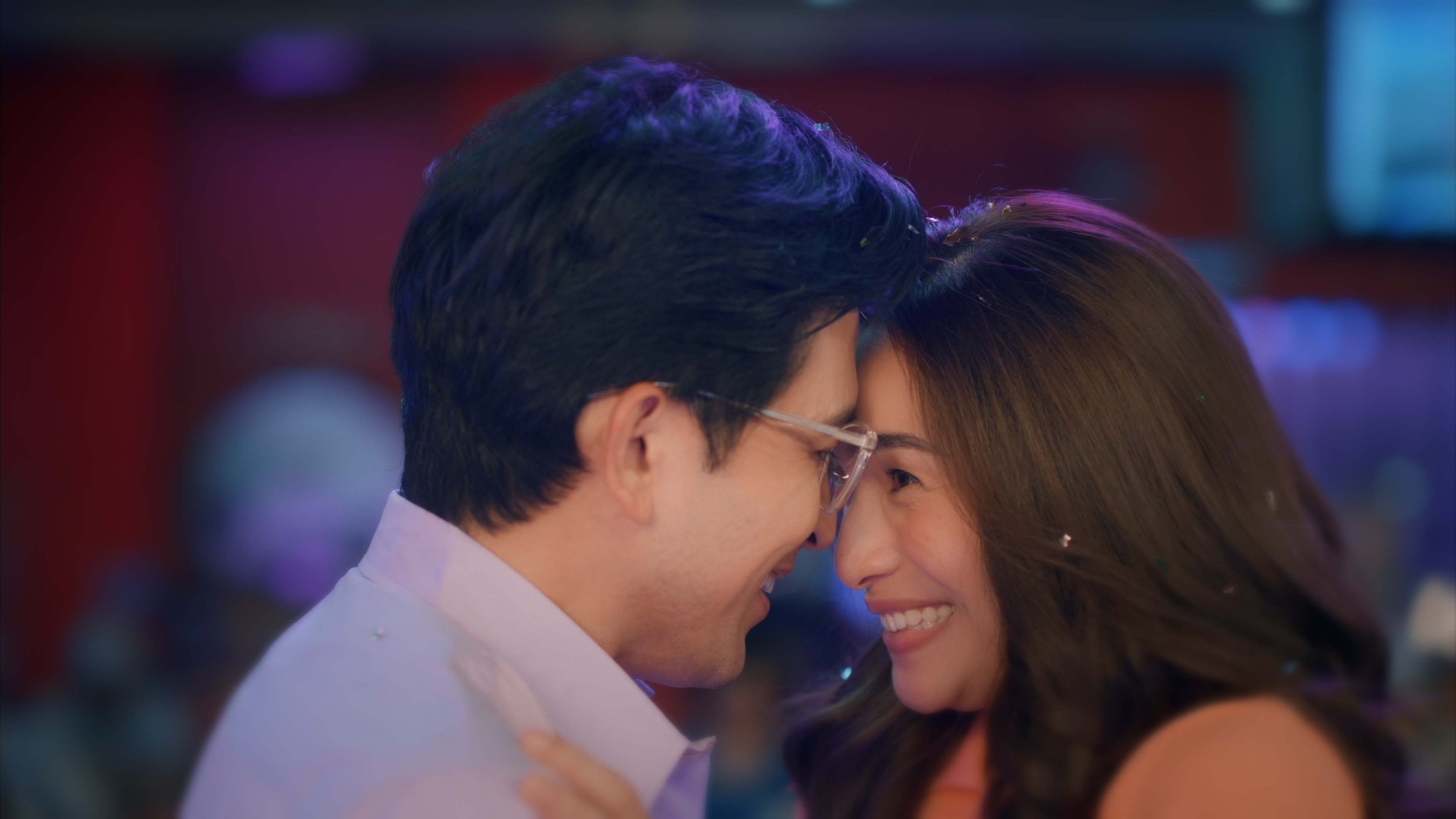‘The Zone of Interest’ REVIEW: Unseen but intensely felt, deafening but endlessly resonant
‘The Zone of Interest' REVIEW: Unseen but intensely felt, deafening but endlessly resonant
An ideal day for a swim in the mansion. Taken from IMDB.
The moment light reaches our eyes, our sight immediately springs into full swing. Its presence, though ostensibly basic, is very crucial, as it acts as a conduit to our ability to perceive what lies before us. But seeing and understanding are obviously two diametrically opposed aspects.
Our eyes are almost always open, constantly observing, yet sometimes they resemble sloths, playfully fiddling around at the tip of the iceberg. If we are so predominantly surrounded by light, why do some consciously dim the truth that is idly sitting in front of them, choosing to play with the distractions despite the clear-cut clarity? If one chooses to avert their eyes, so be it.
This willful choice becomes a meaningful contrast in The Zone of Interest, leveraging the nauseating banality and apathy surrounding the evil that occurred during one of the most harrowing historical atrocities. The Holocaust has not only left a deep-seated mark on its victims, but also on the collective consciousness of the world.
Jonathan Glazer comes back after a tumultuous ten-year production process with this inimitably bold anti-drama, adapted from Martin Amis' novel, that pits inhumane detachment and naturalistic bane as its core fulcrum. The Zone of Interest is an exploration of the cold and systematic genocide of Jewish people at the hands of the Nazis.
It is powerfully made to plunge its viewers in point black darkness, where the horrors of the extermination camps are elevated to such an extensive degree of repugnance, yet without even showing a miniscule hint of bloodshed. We are thrust into the perspective of Rudolf Höss (Christian Friedel), the plain-faced commandant of the Auschwitz camp, as he and his family live day to day in a luxurious spot of land without a shadow of worry, notwithstanding the miserable circumstances beyond the concrete wall that divides their mansion from the hell they have wrought upon others. They bask in the sunlight shining upon their self-made utopia, unhurriedly waiting for the vines to grow and cover it all up.
Hedwig, accompanied by her baby and faithful dog, observes their flourishing garden. Taken from IMDB.
It is as though the film confronts us with our tethering blindness, whether unconscious or motivated. It lunges us into a paradox that seeks not only to lift how we view wickedness but also to push beyond the edges of how we define it. In an interview with The Guardian, Jonathan Glazer recalled his father's reaction upon learning of his intent to make the film. His father's blunt response was piercingly direct: "Why are you digging it up? Let it rot." Through The Zone of Interest, we are given an answer, one that is both essential and sharply created for the reason that we need to realize that this isn't about purely reflecting on the past; it's about unceasingly recognizing and preserving the Holocaust's universal weight, encouraging us to surpass our roles as passive observers and embody the proactive desire to question, challenge, and feel.
The film starts with a four-minute black screen and concludes with a briskly hushed shot. Glazer, unfettered by genre conventions, has a keen eye for visual storytelling coupled with provocative but justified symbolism, all of which are on full display here. This is all compounded by Łukasz Żal's cinematography, which is by design not blotched with a maximalist approach, thereby negating any glamorizing shots but substantially adding to the overwhelming dread in the atmosphere. Its skeletal approach in how it frames certain events with such suffocating stillness is so terrifying that it feels more indelibly disturbing than any jump scare ever conceived on screen.
The Zone of Interest reveals its discomforting vileness in oblique exposition. There are many scenes that may seem very idyllic at first glance but are actually gnawed by subtle monstrosities that recontextualize the film's tone. It's a hellscape knee-bent on cruelty, masquerading as simple mundanity that will beckon with the imagination of its audience.
The evidence of this grim reality is palpable: distant cries and tormented screams dissipate into the air, hints of smoke rise from eviscerated bodies, and ominous signs of train arrivals with a new wave of victims. With the soaring sound design of Johnnie Burns, these fleeting moments within fleeting moments will surely be left imprinted in the minds of whoever dares to watch them.
A flower blooming amid the cries. Taken from IMDB.
There are so many novel ideas that have been heaved in the direction of this movie that left me entirely stunned, but the awe mainly stems from the emotional wallop it punches, not any less so for its artistic merit. And that's a feat that is hard to attain because The Zone of Interest finds its foothold in capturing the ironically uneventful lives of these Nazis, whose only sources of stress are to do daily chores, revel in their extravagance in a lush garden, and fall asleep in noisy silence. The wife of the commandant, Hedwig (Sandra Hüller), also has her own drama subplot that weaponizes the genre's typical reliance on empathy to extend the overarching message that attempting to understand these characters is beyond atrocious, even if they often pat the heads of their pet dogs with the widest smile or water their plants with such delicate care and utter perfectionism.
The Holocaust has always been etched in the public eye for decades, and an immense heap of truths has been archived in various museums to enlighten people that there are no moral ambiguities, only abhorrent puppeteers. We'll surely run out of phrases for how to accurately describe the immeasurable ache that this tragedy caused to the roots of our humanity. We must remember this wound by internalizing it not with our eyes or ears alone, but also with our whole selves.
By actively putting ourselves in different shoes, we allow ourselves to constantly immortalize their stories, filled with throbbing lessons. Glazer's The Zone of Interest uses perspective as its strength and subversion as its bite in making a potent stance against the shameless victimization of millions of people during the Holocaust. Its formalistic refusal to steer into the darkness breathes new light that will seep through the doors of the ignorant. I firmly stand by the belief that this is truly a cinematic tour de force that is brimming with utmost reverence for its subject and genius in its execution.
My eyes hadn't quite seen something like it before.
The Zone of Interest is now available to stream on Prime Video and Apple TV.











